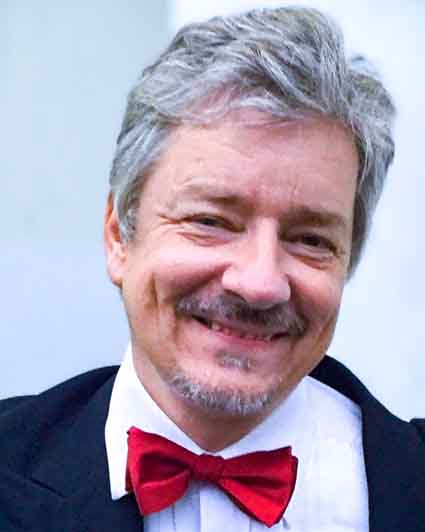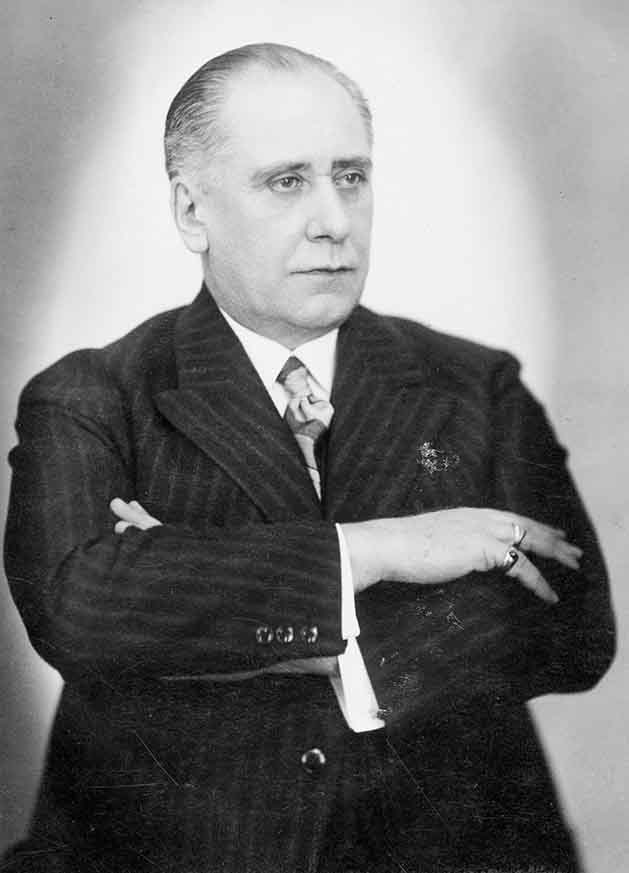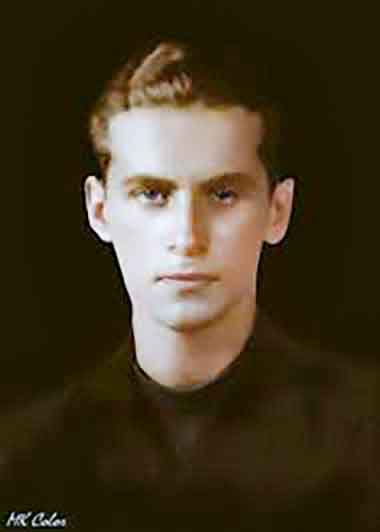A bestselling author Jake Kaminski (this is his pen-name), a Milwaukee native and decorated undercover cop turned writer, will appear for a book signing and discussion of his latest novel Beneath the Polish Moon at the Polish Center of Wisconsin, 6941 S. 68th St., Franklin, WI. The event runs from 4:00 p.m. to 6 p.m. on October 27, 2022.
The book is a semi-autobiographical recollection of a much simpler and kinder time not so long ago in the beautiful City of Milwaukee. Jake was born and raised in Milwaukee. His Polish and Wisconsin roots run deep, his family having immigrated to Milwaukee from the Kashubian region of Poland.
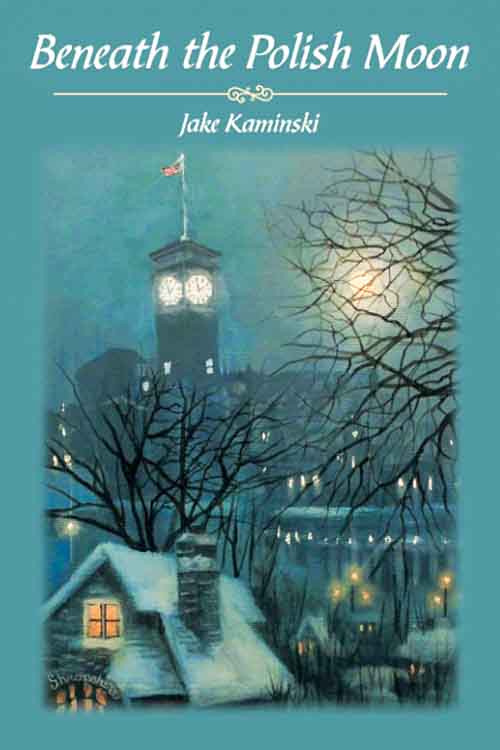
The cover of "Beneath the Polish Moon" (Źródło: Autor)
Beneath the Polish Moon is a story of a group of Polish kids growing up in the inner city of Milwaukee, primarily in the neighborhood that was known as Polonia. It touches on subjects dear to anyone familiar with the plight of immigrants, especially the Polish immigrants, in particular those growing up in the neighborhood surrounding the Allen Bradley (nowadays: Rockwell Automation) clock tower. It's a sentimental tale, focusing not only on the immigrant experience, but also the experiences of the many first-generation kids who lived in a place that was both American and Polish at the same time.
The book is a masterfully interwoven narrative that follows the life of Luke Karpinski, a first generation Polish immigrant growing up in Milwaukee, who later becomes a Miami cop. The narrative follows Luke's childhood in Milwaukee on the one hand, while on the other, it showcases his life as a police officer in the drug-infested Miami in the 70s and 80s. The two narratives come together in the end in a surprising way.
The book is also an exploration of the human condition. The author skillfully describes the conditions under which many Polish nationals immigrated to America at the conclusion of World War II and carved successful lives for themselves in their new homeland — lives that were almost never easy. Their kids, the first-generation Americans, having grown in the neighborhoods that were home to thousands of Polish immigrants, move on to become fully-fledged members of the American society and end up having their own, very human experiences as grown ups.
The reviews of the newly released book speak for themselves:
Whether you will find a glimpse of yourself in one of the characters, an event that sends you on a journey of self-examination, or any other absorbing aspect, the fact is that Jake is a brilliant writer. [OnlineBookClub.org]
Every once in a great while, a novel comes along that hits you where it really counts — straight in the heart. [DesMoines Register]
The book is impossible to put down. If you buy it, give yourself a solid day or two once you crack it open [Dubuque Telegraph Herald]
At once tense and terrifying in the crime aspects and enlightening and warm in the manner in which he explores history and friendships, this is a novel of significance — awaiting high awards! Very highly recommended! [Grady Harp, Top Reviewer, Amazon Reviews]
Jake Kaminski's Beneath the Polish Moon is brilliantly nostalgic. The narrative captures your heart from the beginning and keeps a grip on it to the end. Mr. Kaminski masterfully uses the literary device of flashbacks written within a linear structure. ... Kaminski wrote from his heart and personal experience, penning his characters as precious threads woven in the tapestry of life. The characters are charming, sincere, and relatable... Furthermore, the narrative is wonderfully descriptive, allowing the reader to become part of the time and setting. [Cheryl Rodriguez - Reader's Favorite]
Milwaukee, October 1961
Following is a sample from one of the chapters that illustrates the subtle, good-natured humor permeating the whole book. Two 10-year-olds talking to each other before one of them is supposed to go to confession:
The boys fell into silence again as they got closer to Luke's church. Then, nodding towards the front doors, Eugene posed a question.
"So, what do you do in there?"
"Where?"
Luke [glanced] over at his friend.
"In confession. What is it? Do you just go into church and tell the priest what you did wrong?"
"Yeah, I guess. You go into a little room. And the priest is in another little room next to you."
Eugene looked at his friend, totally bemused. "What kind of little room?"
"You'll see when we get there. It's just a little room. Sort of like a phone booth, but nobody can see you in there. There's a curtain. When you're inside, you kneel down and outside light goes on. That way nobody can walk in on you."
"How does the priest talk to you?"
"There is a little door and he slides it open and talks to you through a screen."
Eugene slowed down a bit, digesting the information.
"It sounds kind of creepy. What do you say to him?"
"Well, if you did something bad, you tell him."
He looked over at Eugene and could see that he was still confused.
"Look, you just tell him everything you did since last confession and he says a prayer and that's it. It's all over."
He checked to see if his friend was satisfied with his explanation, but then remembered something else.
"Oh, and then he gives you a bunch of prayers to say so all the bad stuff you did goes away."
Eugene eyed Luke suspiciously.
"So, do you tell him everything?"
Luke looked at his friend, trying to decide what to say. Then, sheepishly, he replied,
"Well, almost everything."
Jake Kaminski, the Author
Jake Kaminski is a pseudonym. In reality, he is a highly decorated cop who worked undercover himself, and later supervised undercover operations in Miami and Latin America, fighting the notorious drug cartels. After his police career, he spent 14 years as a senior advisor for the U.S. Department of Justice and the U.S. Department of State, assigned to post-war countries in the Balkans (former Yugoslavia). In that capacity, Jake provided technical advice on investigations relating to war crimes, human trafficking, undercover operations, and organized crime. He was awarded the Attorney General's Medal by the Croatian government — the first American ever to receive this honor.
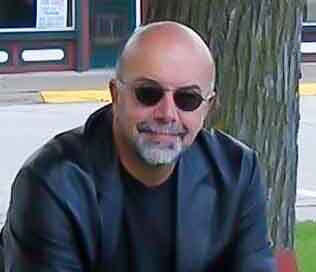
Jake Kaminski (Source: Jake Kaminski)
Currently, he divides his time between overseas consulting and writing. He has traveled extensively throughout Europe and Latin America. He lived and worked in Eastern Europe, including time spent in the war-torn battlefields of Bosnia, Croatia, and Kosovo. He speaks several languages and holds a Bachelor's Degree in both Spanish and French. He also holds a black belt in Taekwondo.
The just-released Amazon bestseller Beneath the Polish Moon is his second novel. His first, Shadow Wolves, won the Silver Medal in the Reader's Favorite Book competition. He is currently working on a much-awaited sequel to Shadow Wolves, to be released in 2023.
The story of Luke Karpinski, who lives on the pages of Beneath the Polish Moon, is likely to touch many of our readers, especially those familiar with the Milwaukee area. The book signing event at the Polish Center of Wisonsin on October 27th is an opportunity to meet the author and experience his storytelling ability — and charming personality — first hand.



